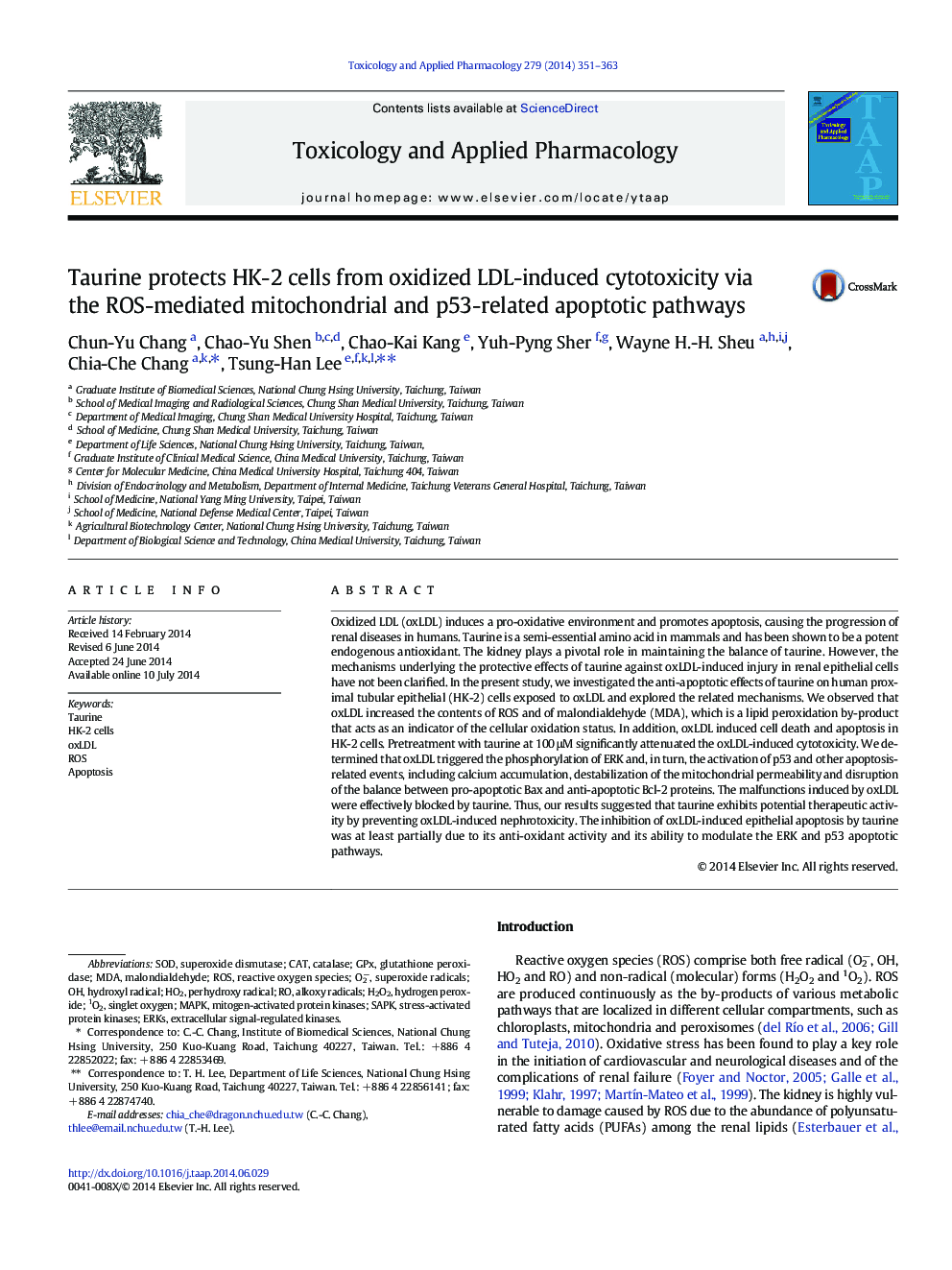| Article ID | Journal | Published Year | Pages | File Type |
|---|---|---|---|---|
| 2568554 | Toxicology and Applied Pharmacology | 2014 | 13 Pages |
•Oxidized LDL induced cytotoxicity and apoptosis in HK-2 cells.•Pretreatment with taurine attenuated oxLDL-induced nephrotoxicity.•Taurine protected against renal damages through inhibition of ROS generation.•Taurine prevented apoptosis through modulation of the p53 phosphorylation.
Oxidized LDL (oxLDL) induces a pro-oxidative environment and promotes apoptosis, causing the progression of renal diseases in humans. Taurine is a semi-essential amino acid in mammals and has been shown to be a potent endogenous antioxidant. The kidney plays a pivotal role in maintaining the balance of taurine. However, the mechanisms underlying the protective effects of taurine against oxLDL-induced injury in renal epithelial cells have not been clarified. In the present study, we investigated the anti-apoptotic effects of taurine on human proximal tubular epithelial (HK-2) cells exposed to oxLDL and explored the related mechanisms. We observed that oxLDL increased the contents of ROS and of malondialdehyde (MDA), which is a lipid peroxidation by-product that acts as an indicator of the cellular oxidation status. In addition, oxLDL induced cell death and apoptosis in HK-2 cells. Pretreatment with taurine at 100 μM significantly attenuated the oxLDL-induced cytotoxicity. We determined that oxLDL triggered the phosphorylation of ERK and, in turn, the activation of p53 and other apoptosis-related events, including calcium accumulation, destabilization of the mitochondrial permeability and disruption of the balance between pro-apoptotic Bax and anti-apoptotic Bcl-2 proteins. The malfunctions induced by oxLDL were effectively blocked by taurine. Thus, our results suggested that taurine exhibits potential therapeutic activity by preventing oxLDL-induced nephrotoxicity. The inhibition of oxLDL-induced epithelial apoptosis by taurine was at least partially due to its anti-oxidant activity and its ability to modulate the ERK and p53 apoptotic pathways.
